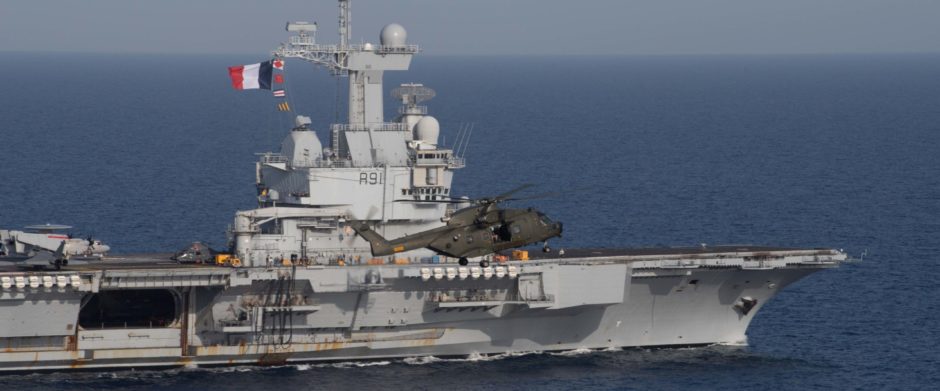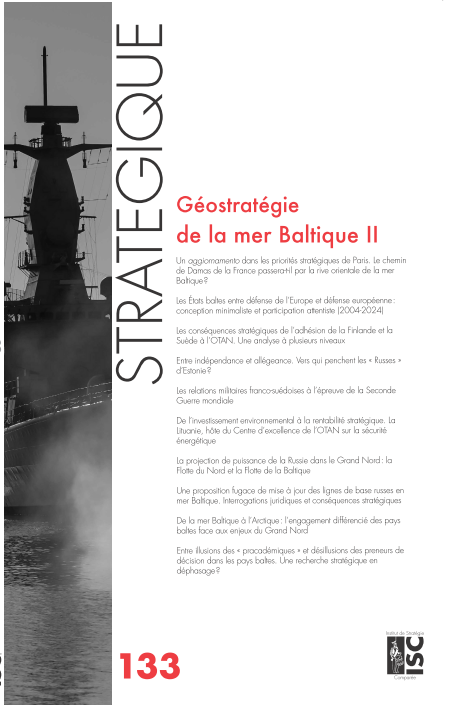Hervé Coutau-Bégarie
Peut-on encore faire de la philosophie avec des instruments hérités de la Grèce antique ou de la théologie avec des concepts mis au point par les scolastiques du Moyen Âge ? La question n’a pas lieu d’être, les philosophes lisent constamment les œuvres de Platon ou d’Aristote, les théologiens utilisent encore couramment les sommes de saint Thomas d’Aquin ou de saint Bonaventure. Lorsqu’ils s’en écartent pour inventer quelque chose de neuf, ou du moins présenté comme tel, il se trouve toujours quelques bons esprits pour leur rappeler que la prétendue nouveauté se trouve déjà exprimée, sous une autre forme, par les classiques les plus canoniques. Au xviiie siècle, l’érudit Louis Dutens entreprit ainsi de réfuter le discours des philosophes. Plus récemment, le sociologue américain d’origine russe Pitirim Sorokin a montré combien l’école de sociologie de Talcott Parsons s’était largement illusionnée sur la nouveauté radicale de son discours. Dans toutes les disciplines, le retour aux classiques reste une exigence de méthode, on devrait presque dire d’hygiène mentale. Au-delà de toutes les transformations techniques ou sociales, on trouve, chez quelques esprits d’exception, des raisonnements lumineux qui résistent à l’épreuve du temps.
L’art de la guerre ne fait pas exception à la règle. On ne cesse aujourd’hui de discourir sur la ou les révolutions dans les affaires militaires. Les prodigieuses transformations techniques auxquelles nous avons assisté durant les dernières décennies, et dont la guerre du Golfe contre l’Irak a constitué un champ d’expérimentation en grandeur nature, n’ont pas pour autant invalidé les concepts et les méthodes des pères-fondateurs. Certes, ceux-ci ont été élargis, complétés, rectifiés, mais leur lecture reste toujours obligatoire. Au premier rang de ceux-ci figure Sun Zi, le plus lu et le plus ancien des stratégistes puisqu’il a près de 2 500 ans, et Clausewitz, le maître prussien qui connaît un étonnant retour de faveur après une relative traversée du désert du lendemain de la Première Guerre mondiale aux années 1960. Les traductions de son maître-livre, Vom Kriege, déferlent à un rythme soutenu depuis le début des années 1970. Les commentaires se multiplient. Le Clausewitz doctrinaire du militarisme prussien a cédé la place à un Clausewitz théoricien dont on ne finit pas de découvrir la richesse. Werner Hahlweg, le grand maître de la philologie clausewitzienne, a ramené à la surface quantité de textes inédits ou peu connus qui n’attendent que d’être analysés et commentés. L’œuvre de Clausewitz ne saurait, en effet, se réduire à Vom Kriege, parce qu’il a écrit quantité d’études historiques du plus haut intérêt, dans lesquelles on trouve des annotations de portée générale, mais aussi parce que Vom Kriege, initialement conçu comme le traité de la grande guerre, n’était qu’un volet d’un triptyque. Il devait être complété par un traité sur la petite guerre (que l’on appellera par la suite guérilla) et un traité sur la tactique. Le traité sur la petite guerre n’a pas été écrit, mais ses grandes lignes ont été exposées dans un cours professé à la Kriegsakademie en 1810-1811 ; ses notes de cours n’ont pas été reprises par Marie von Clausewitz dans l’édition posthume des œuvres de son mari, mais elles ont été exhumées par Werner Hahlweg qui les a publiées dans le premier volume des écrits divers qu’il a réunis1. Elles n’ont fait l’objet d’aucune traduction et attendent encore un commentaire exhaustif.
Le traité de tactique est le volet du triptyque qui a reçu le moins de développements écrits. Il n’en reste que le fragment qui est ici publié sous le titre Théorie du combat. Connu de longue date, résumé en français dès 1835 par un officier polonais servant dans l’armée française, Louis de Szafraniec Bystrzonowski, à la demande du duc d’Orléans, fils du roi Louis-Philippe, il n’a guère attiré l’attention et ne semble jamais avoir été traduit intégralement. L’Institut de Stratégie Comparée a souhaité le mettre à la disposition du public francophone. Le concours des Écoles militaires de Saint-Cyr/Coëtquidan et de leur actif Centre de recherches a rendu la chose possible. Thomas Lindemann, Allemand de naissance et maître de conférences à l’Université des sciences sociales de Toulouse, a accepté de se charger de la traduction.
La tâche était difficile car cette esquisse présente, réduite jusqu’à l’épure, la méthode clausewitzienne, qui ne part pas de situations historiques concrètes, mais développe un raisonnement logique, purement abstrait. On n’a guère d’autre exemple d’étude sur le combat qui parvienne à enchaîner des propositions abstraites sur une centaine de pages sans jamais se référer à l’expérience. Le corollaire évident est une extrême difficulté de traduction qui commence dès le titre : comment rendre gefecht ? C’est l’un des concepts clés de Clausewitz et il a donné lieu à des variations multiples. Denise Naville, dans sa traduction de De la guerre, l’a rendu par engagement, imitée par Michael Howard et Peter Paret dans leur nouvelle traduction anglaise. Howard et Paret sont deux autorités en matière d’histoire militaire et nul ne songerait à contester leur compétence. Pourtant, il n’est pas certain que leur choix puisse être suivi. Une troupe peut être engagée sans combattre lorsqu’elle est montée au front, qu’elle se trouve en première ligne et qu’elle ne dispose plus d’aucune liberté de manœuvre, une retraite pour s’orienter vers un autre front lui étant impossible sans combattre. Le combat est intimement lié à l’épreuve de force, au dire des armes. Le livre IV de Vom Kriege semble plus proche de l’idée du combat que de celle d’engagement et la traduction italienne d’Ambrogio Bollati et d’Emilio Canevari a bien rendu Gefecht par combattimento. Ici, Thomas Lindemann a choisi, avec raison, de s’en tenir au mot combat, qui rend bien compte du critère décisif de la tactique, si l’on s’en tient aux définitions classiques qui n’ont pas nécessairement été invalidées par les développements récents, tant de la théorie que de la pratique.
Certains passages paraîtront peu clairs. Cela tient moins à des faiblesses de traduction qu’au caractère compact et souvent difficile du discours clausewitzien lui-même. Clausewitz avait une méthode philosophique, il avait lu un certain nombre de philosophes, on a beaucoup parlé de l’influence qu’ont pu avoir sur lui Kant ou Fichte, on y a même ajouté Hegel dont on est loin d’être certain qu’il l’ait connu. Mais il n’était pas pour autant un philosophe et son système conceptuel témoigne parfois d’hésitations ou d’impropriétés dans l’emploi des termes. C’est une difficulté supplémentaire à laquelle se heurte le traducteur. On dispose aujourd’hui, en français, de trois traductions complètes de Vom Kriege, d’au moins deux traductions partielles et d’un résumé qui contient beaucoup de passages traduits littéralement. La juxtaposition de ces différentes versions fait ressortir des divergences et même des contradictions insurmontables. Il n’est pas sûr que cela soit seulement imputable à l’inexpérience ou à l’ignorance des traducteurs, puisque les mêmes incertitudes se retrouvent dans les traductions anglaises. Un commentateur perfide n’a-t-il pas noté que la traduction de Paret et de Howard corrigeait un grand nombre d’erreurs des précédentes traductions mais en ajoutait d’autres ? Il est bien certain qu’en traduction plus qu’ailleurs, l’idéal n’est pas de ce monde et que seul le recours à l’original permet une étude véritablement scientifique et philosophique d’une œuvre aussi complexe et dense que celle de Clausewitz. Mais tout le monde n’est pas censé avoir une maîtrise parfaite de la langue germanique. Les traductions, malgré leurs défauts ou leurs insuffisances, sont indispensables.
L’Institut de Stratégie Comparée et les Écoles militaires de Saint-Cyr/Coëtquidan, en proposant celle-ci, n’ont d’autre but que d’offrir à un plus large public un exemple de raisonnement purement philosophique sur l’art de la guerre, un modèle qui pourra éventuellement inspirer des commentateurs ou, au moins, suggérer à des amateurs, dans le bon sens du terme, quelques réflexions originales ou quelques pistes de recherche qu’ils auront ensuite tout loisir d’approfondir ou d’adapter à leur manière.
Hervé Coutau-Bégarie
Directeur d’études à l’École Pratique des Hautes Études
président de l’Institut de Stratégie Comparée
________
Notes:
1 Carl von Clausewitz, Schriften-Aufsätze-Studien-Briefe, hrgb Werner Hahlweg, Gottingen, Vandenhoek & Ruprecht, 1966.









